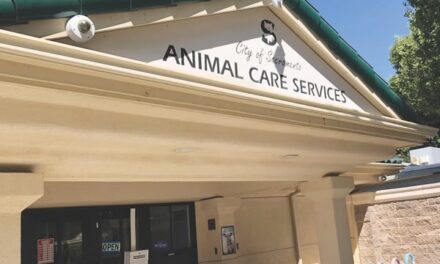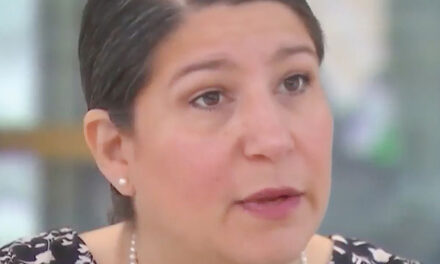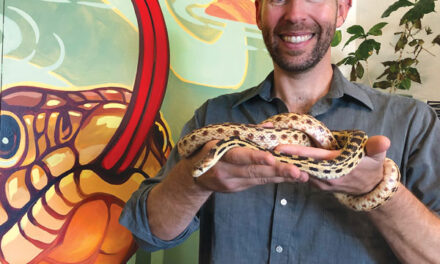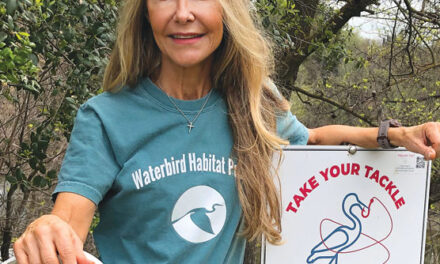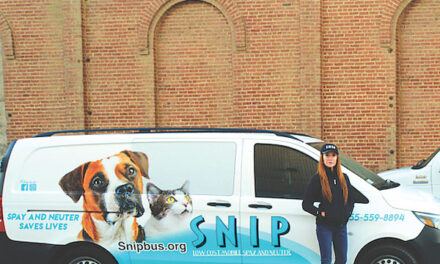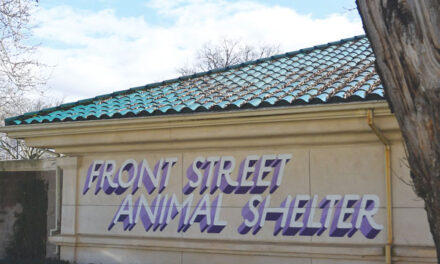Build It and They Will Come
SSPCA announces plans for new state-of-the-art spay clinic
By Cathryn Rakich
October 2020
“Why are Sacramento’s animal shelters overcrowded?” asks Kenn Altine, chief executive director of the Sacramento SPCA. The answer: Pet owners are not spaying and neutering.
Why aren’t they spaying and neutering? “For years, we kept saying people won’t do it. We need to do more education,” Altine says. “Well, people want to do it. People call us every day to do it.”
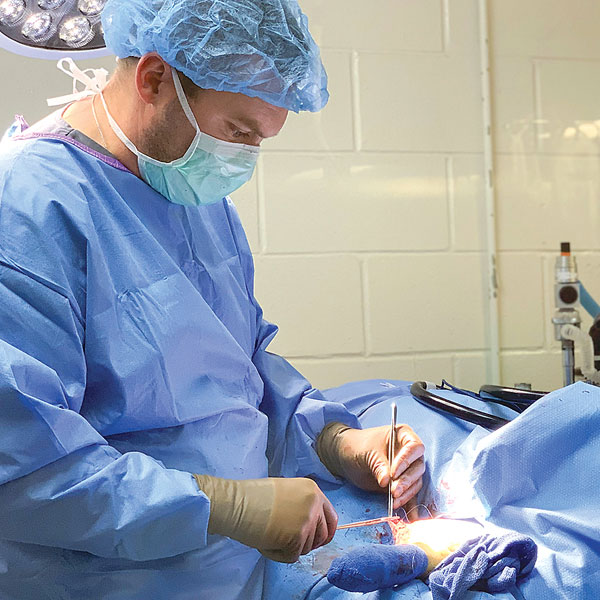
Then what’s the catch? The average wait time is 90 days to secure a surgery appointment at the SSPCA—one of two low-cost spay/neuter clinics in the Sacramento area.
“It’s not that they don’t want to do it. It’s that they can’t.”
Altine calls the situation “a self-defeating cycle.” The gestation period for a dog or cat is 63 days. “People come to us to do the right thing—to get their pet fixed. Here’s a low-cost program. We just can’t do it for 90 days. Now they need to get that dog fixed—and five puppies.”
With a goal to decrease appointment wait times and increase surgeries, Altine and his team spoke to staff, volunteers and donors. They toured other organizations, including shelters in Pasadena and the East Bay, to get a sense of what is doable.
Renovating the existing clinic was not an option. There is nowhere to expand. What about the 10 acres of SSPCA-owned land adjacent to the current shelter on Florin-Perkins Road? “Renovation is a lot cheaper than new construction,” Altine says.
That’s when they recognized that the SSPCA’s administrative building—also known as Building B—had a lot of poorly used square footage. “We sat down with our architect and looked at our existing space. Where can we build four operating rooms and the prep areas to support them, and all the kennels we need to house the animals pre- and post-surgery?”
A plan was born. A complete gut of Building B would work.
The spay clinic will grow from its current 3,700 square feet to 6,400 square feet. Immediate plans include adding an extra vet and support team, and “start doing 25 more surgeries a day from the day we open the clinic,” Altine says.
The new clinic will have four surgical suites, a prep area to accommodate eight tables instead of the current four, and larger check-in/waiting rooms for the public. The recovery area will triple in size.
Metal kennels that house cats pre- and post-surgery will line one wall instead of both sides of the room. “In the new layout, no cats are facing each other. That’s hugely stressful on cats,” Altine says.
New large walk-in kennels for big dogs will make it easier to transfer canines in and out, and allow pooches to lay down and move around. “With a 90-pound unconscious German shepherd, you just roll the gurney into the kennel, lift it up and set it on the floor, and roll back out.”
Two dedicated dental suites will allow vets to perform dental work on the shelter’s in-house animals, and hopefully one day on the public’s pets. “We know affordable dental care for animals is a huge need in our community,” Altine says. “Even though we can’t provide it today—we should be able to provide it in the future.”
The cost for the new spay clinic: $4.8 million.
Approximately $2 million in estate gifts is already secured. The sale of the SSPCA-owned thrift store Downtown is expected to bring in another $800,000. “The women’s guild that created the thrift store back in the ’70s was focused on spay and neuter,” Altine says. “They helped build the first spay/neuter clinic. We felt it was not just appropriate, but a tribute to their efforts that the sale of that building help the new clinic.”
Another significant gift comes from the McCrea 2000 Trust. “Zoe McCrea gave us the lead gift that really pushed this forward,” says Altine, who reports the new clinic will be called the Zoe K. McCrea Center for Animal Health.
Construction is underway. But with approximately $525,000 left to raise, the SSPCA is reaching out to the community.
“There is no more important use of my time right now than funding this clinic,” Altine says. “The reality is we are doing fewer public spays and neuters right now (due to COVID-19 safety protocols), which means that long list is growing longer. And while it’s growing, puppies and kittens are being born.”
Depending on construction, the old clinic will shut down for two to four weeks in December to move equipment to the new site. Altine expects the new Center for Animal Health to be up and running by January.
“It’s the opposite of build it and they will come,” Altine says. “It’s they are coming, we better build it.”
For more information or to donate to help build the new spay clinic, visit sspca.org.
Cathryn Rakich can be reached at crakich@surewest.net. Follow us on Facebook, Twitter and Instagram: @insidesacramento.



